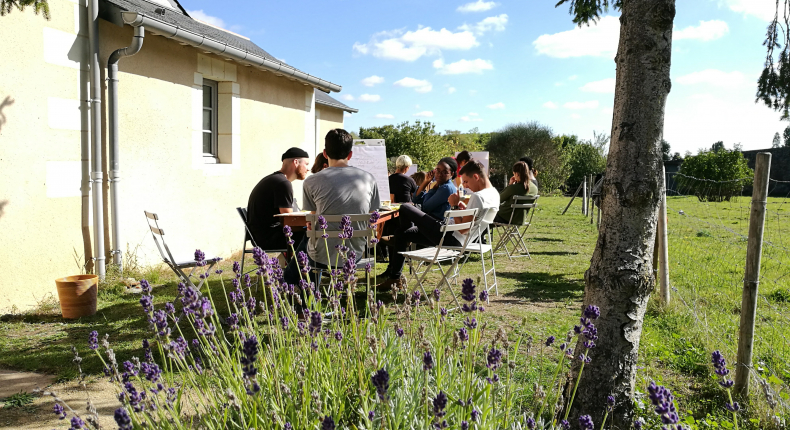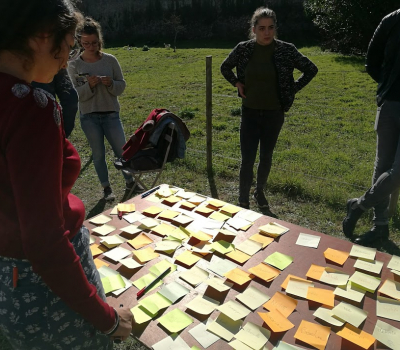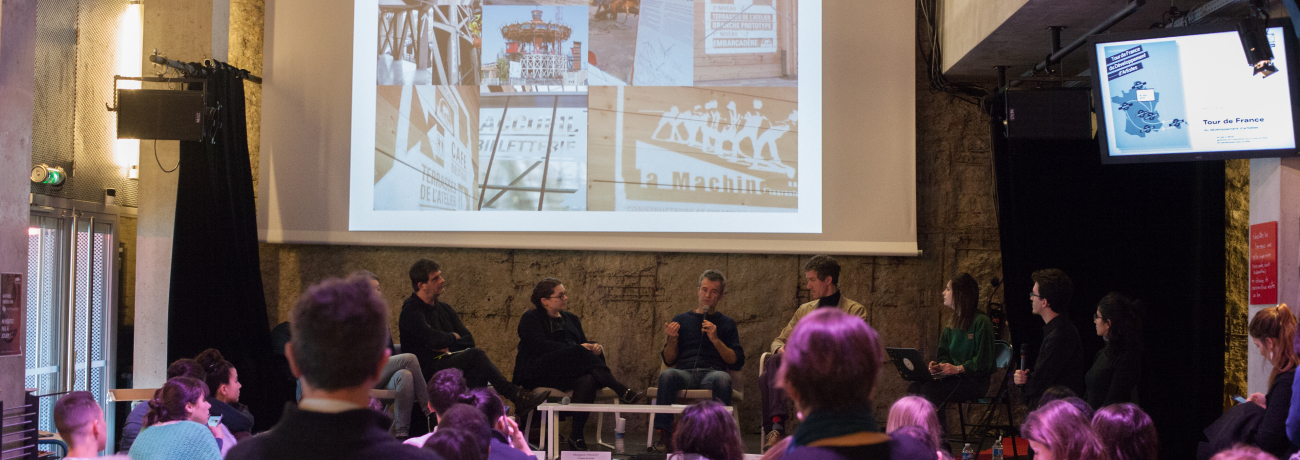SHS_Créatifs engages students from the Université d’Angers and the École de Design Nantes Atlantique in pooling their practices and building bridges between the worlds of Design and Social and Human Sciences (SHS) to develop a response to a problem. The objective of this educational module is to foster a common critical stance which students will be able to apply in the professional situations they encounter in the future.
It is open to students from three courses: the Masters cycle at the École de Design Nantes Atlantique, and the Masters in Business Engineering and Strategy (specialising in development, enterprise and territory) and the Licence Professionnelle in Cultural Business Administration (Université d’Angers).
WINNER OF THE 2017 CALL FOR INNOVATIVE INITIAL EDUCATION PROJECTS
With a view to developing new, long-term pathways and courses, these modules anticipate the skills socio-economic stakeholders are going to require in the future.
Two partners
- École de Design Nantes Atlantique: Masters cycle in Interaction Design
- Université d’Angers: Masters in Business Engineering and Strategy “development, enterprise and territory”
About the module
SHS_Créatifs fosters students’ abilities to co-develop and combine methodologies and original ways of thinking, to pave the way for new practices and relations between the worlds of design and social and human sciences. The project places human sciences at the centre of an interdisciplinary approach. Students have to share their disciplinary perspectives to find a way to work out, illustrate, question and explain an issue, starting from a set topic. The first topic is “Development & Design”.
Participants will be tasked with identifying the different dynamic/pragmatic and tangible positions associated with the disciplines while also developing a shared critical stance.


Teaching and Accreditation arrangements
The module is organised in stages which combine methods from the worlds of SHS and Design: Overview/ideation/concept illustration/ conceptual prototyping /launch
The educational objectives are as follows:
To help identify the needs of SHS in relation to the design professions and the needs of the design professions in relation to SHS;
To identify teaching approaches that encourage the transfer of SHS methodologies to design projects (consolidating understanding of uses within the design professions);
To highlight the role design tools can play in enhancing and making projects from the world of SHS relevant to civil society;
To encourage interdisciplinary cooperation, thus preparing SHS and design students for the professional world.
2 – 10 ECTS credits
Schedule
22 September 2017: launch seminar at Maison Julien Gracq
6 December 2017: production workshop at the École de Design Nantes Atlantique
December-February 2018: autonomous and remote work on production
2 February 2018: public exhibition at Trempolino
Deliverables expected
Final projects will be showcased at a public event at Trempolino. Deliverables could take a number of forms including posters, presentation materials describing the approach taken, and any materials which facilitate understanding of the project (models, videos, prototypes, user scenarios).
Prospects
This module fosters the development of cross-disciplinary expertise which students can implement in their projects by working cooperatively, building bridges between their knowledge and removing the boundaries between their respective practices. These abilities are essential and common to the courses of study concerned. Academic staff would like this module to become an ongoing component of programmes at partner institutions. This will involve setting in motion an SHS process appropriate to all member institutions in RFI OIC. More broadly, the results of this cycle will be transferable to a self-standing educational module.
Contacts
Laurent Neyssensas (École de design Nantes Atlantique) – l.neyssensas@lecolededesign.com –
Dominique Sagot-Duvauroux (Université d’Angers) – dominique.sagot-duvauroux@univ-angers.fr
Sandrine Emin (Université d’Angers) – sandrine.emin@univ-angers.fr


